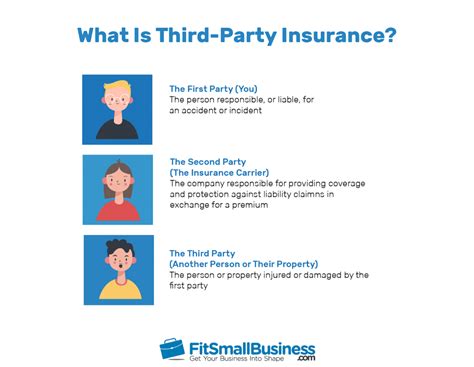Discover the benefits and risks covered by finite risk insurance. Learn how it impacts businesses and factors to consider when choosing the right coverage.
Understanding Finite Risk Insurance
Contents
Finite risk insurance is a type of risk management strategy that provides a fixed payment for potential losses. Unlike traditional insurance, which covers an unlimited amount of risk over a period of time, finite risk insurance caps the total amount of risk that is insured. This means that the insurer is only liable for a predefined maximum loss, which can provide a sense of security for both the insured and the insurer.
One of the key features of finite risk insurance is that it allows the insured to better predict their potential losses, as they know exactly how much they will receive in the event of a claim. This can be particularly beneficial for businesses that operate in high-risk industries or are facing uncertain economic conditions. By knowing the maximum amount of risk that is covered, businesses can make more informed financial decisions and allocate resources more effectively.
Another important aspect of finite risk insurance is its potential to provide cost savings for the insured. Since the insurer is only liable for a fixed amount of risk, the premiums for finite risk insurance are often lower than those for traditional insurance policies. This can make finite risk insurance an attractive option for businesses looking to manage their risk exposure while also controlling their insurance costs.
In addition to providing financial stability and cost savings, finite risk insurance can also offer greater flexibility in risk management. The structure of finite risk insurance allows the insured to negotiate specific terms and conditions with the insurer, tailoring the coverage to their individual needs and risk profile. This level of customization can be especially valuable for businesses with unique risks or specialized insurance requirements.
Benefits of Finite Risk Insurance
Finite risk insurance, also known as stop-loss or excess of loss insurance, comes with a plethora of benefits for businesses. One of the key benefits of finite risk insurance is that it provides financial protection against catastrophic losses. With finite risk insurance, businesses can safeguard themselves against unexpected large losses that could potentially jeopardize their financial stability.
Another advantage of finite risk insurance is that it allows businesses to budget for their insurance costs more effectively. This is because the coverage limits and premiums are predefined, providing businesses with clear visibility of their potential liabilities and insurance expenses. As a result, businesses can better manage their cash flow and allocate funds for other operational needs.
Moreover, finite risk insurance offers businesses the opportunity to customize their coverage based on their specific risk tolerance and exposure. This flexibility allows businesses to tailor their insurance solutions to meet their unique needs and risk profiles, ensuring that they have adequate protection without overpaying for unnecessary coverage.
Furthermore, finite risk insurance can be a valuable tool for businesses looking to improve their risk management strategies. By transferring a portion of their risk to an insurer, businesses can enhance their overall risk management approach and reduce their financial vulnerability to unforeseen events.
In summary, the benefits of finite risk insurance are extensive, ranging from financial protection and budgeting advantages to customization options and enhanced risk management capabilities. For businesses seeking comprehensive insurance solutions that align with their risk management goals, finite risk insurance presents a compelling option.
Risks Covered by Finite Risk Insurance
When it comes to understanding the risks covered by finite risk insurance, it’s important to know that this type of insurance is specifically designed to cover a wide range of risks that are unique to each individual business. Finite risk insurance provides coverage for potential losses and liabilities that are beyond the control of the insured, such as property damage, business interruption, and liability claims.
One of the key benefits of finite risk insurance is its ability to cover risks that are not typically covered by traditional insurance policies. This includes risks related to financial markets, catastrophic events, and unexpected losses that can have a significant impact on a business’s bottom line.
With finite risk insurance, businesses can also customize their coverage to address specific risks that are unique to their industry or operations. This allows for a more tailored approach to risk management, providing businesses with the peace of mind that they are protected against the specific risks that can threaten their financial stability.
In addition, finite risk insurance can also provide coverage for contingent risks, which are risks that may not be immediately apparent but could potentially result in substantial losses if they were to occur. This can include risks related to supply chain disruption, regulatory changes, and other unforeseen events that could impact a business’s operations.
Overall, finite risk insurance offers businesses a comprehensive solution for managing a wide range of risks, providing coverage for both known and unknown risks that could have a significant impact on their financial security.
Factors to Consider When Choosing Finite Risk Insurance
When deciding on which finite risk insurance policy to choose, there are several important factors that should be taken into consideration. One of the most crucial factors to think about is the financial stability and reputation of the insurance company. It is essential to ensure that the company is financially capable of covering potential claims and has a good track record of fulfilling its obligations to policyholders.
Additionally, it is important to carefully review the terms and conditions of the policy to understand the coverage provided. This includes the specific risks covered by the policy, the limits of coverage, and any exclusions that may apply. It is important to ensure that the policy provides adequate protection for the specific risks faced by the insured party.
Another factor to consider is the cost of the insurance policy. While it is important to find an affordable option, it is equally important to ensure that the policy provides adequate coverage. It is advisable to compare quotes from different insurers to find the best value for the coverage needed.
Furthermore, it is important to consider the level of support and service provided by the insurance company. This includes the accessibility of customer support, ease of filing claims, and the efficiency of claims processing. Choosing an insurer that provides excellent customer service can make a significant difference in the overall experience of obtaining and utilizing the insurance policy.
Impact of Finite Risk Insurance on Businesses
Finite risk insurance can have a significant impact on businesses, providing them with valuable coverage that can help protect their assets and financial stability. By providing businesses with a way to manage and transfer risk, finite risk insurance can help them take on larger projects and opportunities with confidence, knowing that they have a safety net in place. This can contribute to business growth and expansion, as businesses can pursue new ventures knowing that they have protection in place.
Furthermore, finite risk insurance can also have a positive impact on a business’s bottom line. By providing coverage for specific risks, businesses can avoid costly financial losses that could have a detrimental effect on their profitability. This can help businesses maintain financial stability and drive long-term success.
Additionally, finite risk insurance can provide businesses with a level of predictability when it comes to managing risk. By having a set limit on the coverage provided, businesses can more accurately assess the potential impact of specific risks and plan accordingly. This can help businesses make informed decisions and allocate resources effectively to mitigate risks.
Moreover, finite risk insurance can also impact a business’s ability to attract investment and secure partnerships. By having comprehensive coverage in place, businesses can instill confidence in potential investors and partners, showcasing their commitment to managing risk and protecting their assets. This can contribute to building credibility and trust within the business community.












